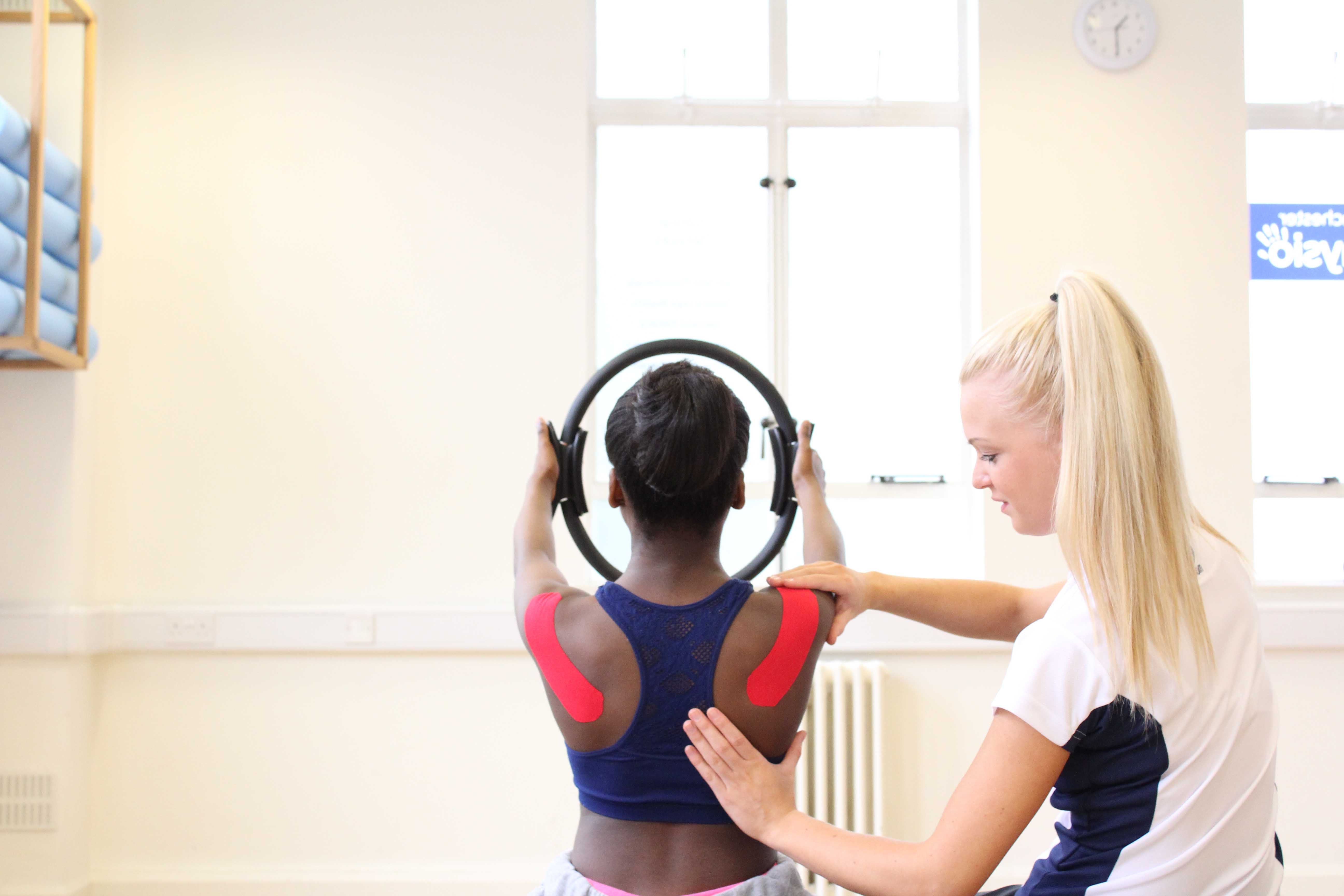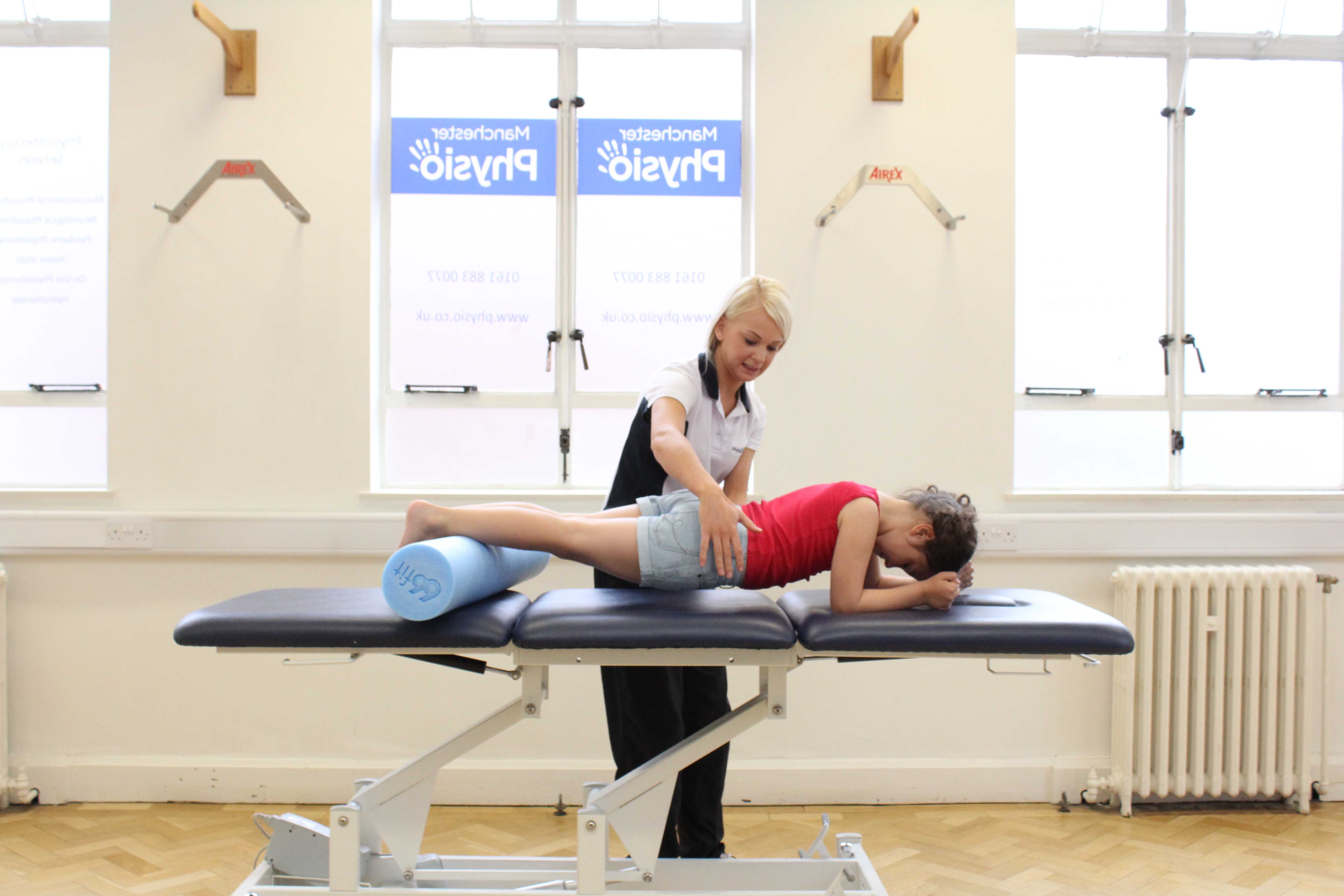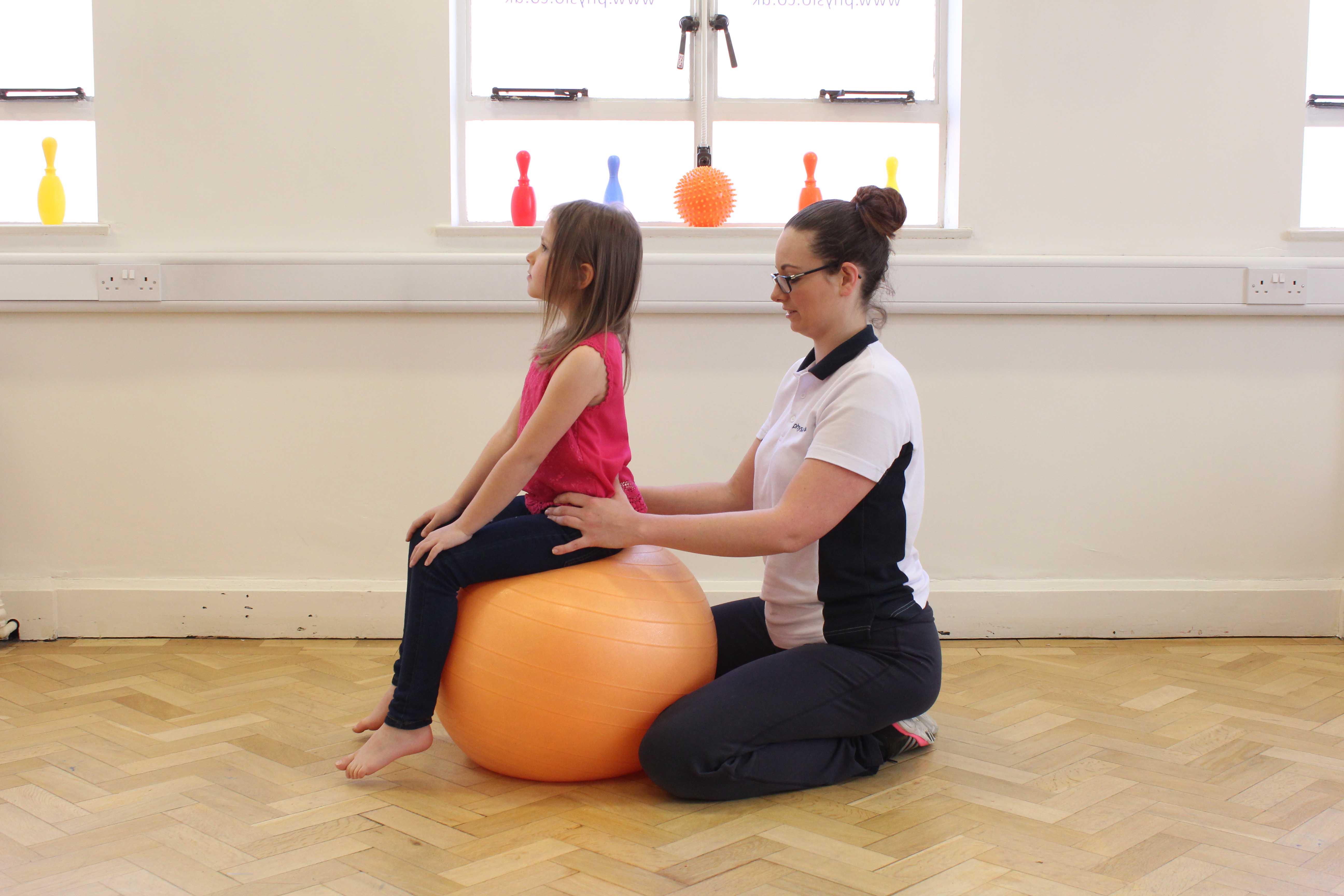What is paediatric hypotonia?
Hypotonia describes an abnormal decrease in muscle tone. Muscle tone is the resistance of muscle to stretch. Normal muscle tone is controlled by the central nervous system and is high enough to resist the effects of gravity but low enough to allow full freedom of movement. Correct muscle tone is essential for a person to be able to stand up, sit up and function properly. If a child has low muscle tone they are unable to sustain a static, normal muscle contraction. Because their muscles are not able to fully contract, they remain slack and loose; this causes the characteristic “floppy” appearance. Hypotonia can effect gross and fine motor coordination, problems with sitting balance, and difficulties taking part in everyday activities.
 Above: Tape applied to raise patient awareness of tone and position
Above: Tape applied to raise patient awareness of tone and positionWhat causes Hypotonia in children?
Hypotonia is caused by disruption to the nerve pathways in the central nervous system that are responsible for turning muscle activity on or off. These nerve pathways carry information from the central nervous system to the body to control muscle tone and posture. Damage to these pathways cause a disturbance of the messages from the brain to the body, resulting in decreased tone. Damage may be caused by environmental factors, muscle, genetic or central nervous system disorders, as well trauma. However, sometimes it may not be possible to determine the cause of the hypotonia.
 Above: Planking exercise to raise tone in patient core muscles
Above: Planking exercise to raise tone in patient core musclesWhat are the symptoms of hypotonia in children?
- “floppy” appearance
- Substantial weakness
- Little or no head control
- Mobility and posture problems
- Speech and breathing difficulties
- Ligament and joint laxity
- Poor reflexes
- Lethargy
What can physiotherapy do to help children with hypotonia?
Physiotherapy can help decrease hypotonia. As muscle tone is an involuntary response, it is possible to make alterations in muscle response through sensory integration treatment techniques which amplify the “alertness” of the muscle by flooding it with sensory information. This develops the brain’s ability to recognise alterations in muscle length and assists the process of transmitting the message to the brain to initiate a muscle contraction. With continuing treatment and everyday practice, it is possible responses can be elicited more regularly and the efficiency of low tone muscles can improve. Fine motor control and overall body strength can also be improved.
Other physiotherapy treatment could include working on the muscles that the child has poor control over. This is important as their movement will be affected by the lack of control. This treatment may include strengthening of the affected muscles and practice of affected movements.
If posture is affected then treatment would be aimed at core stability exercises and improving control over large muscle groups. This should make it easier for the child to control their body position.
 Above: Using core stability exercises on uneven surface to raise tone.
Above: Using core stability exercises on uneven surface to raise tone.Summary
Hypotonia is a term used to describe abnormally low muscle tone. Children with hypotonia can have a floppy appearance because their arms and legs hang by their sides. They may also have considerable weakness and poor head control. It is caused by problems transmitting messages within the central nervous system. These problems can be a result of trauma sustained by the child, environmental factors, as well as genetic, muscle or central nervous system disorders. Symptoms include floppy appearance, extensive weakness, and poor head control amongst others. Physiotherapy can help hypotonia.
To book an appointment or for more information about paediatric hypotonia contact us or call 0330 088 7800.

 0330 088 7800
0330 088 7800

































